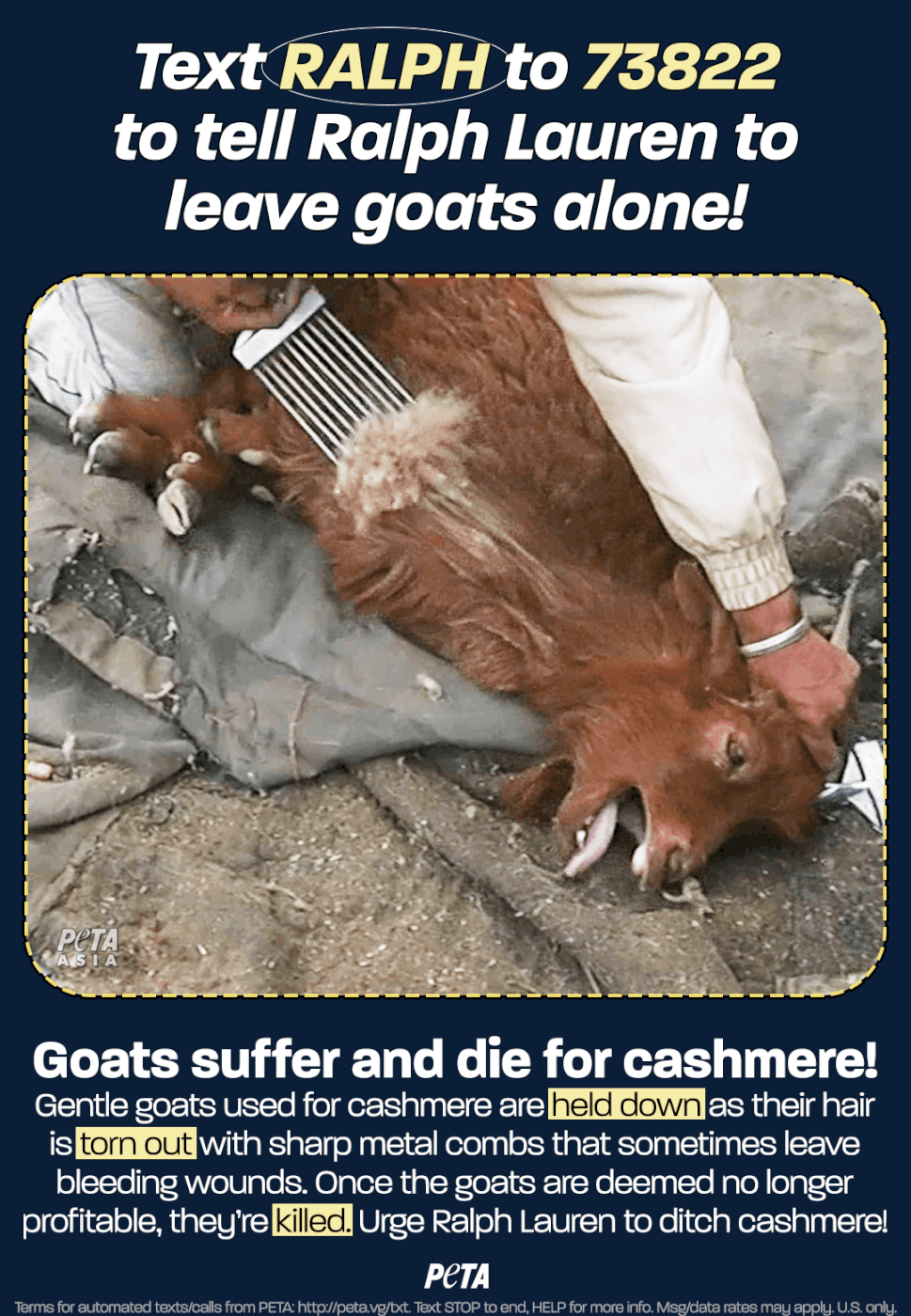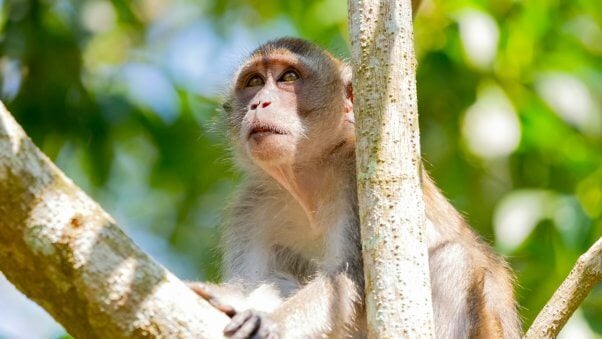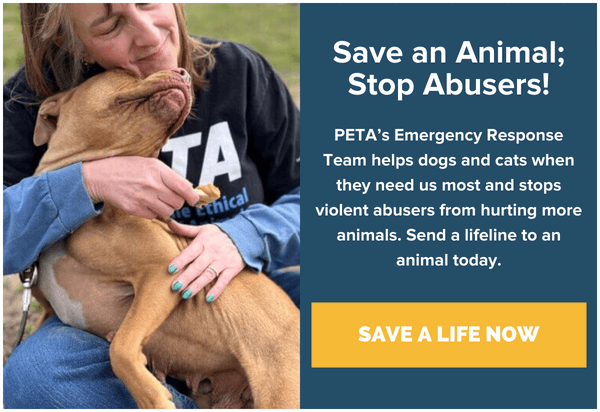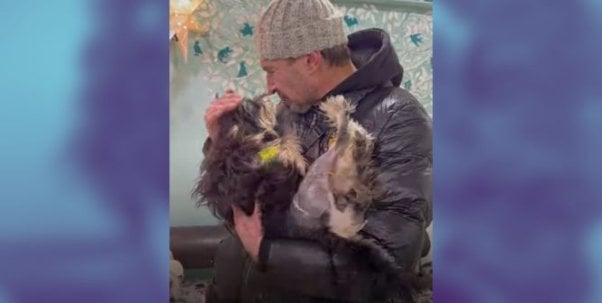PETA Asia’s investigation into the cashmere industry in Mongolia—where Ralph Lauren obtains the fiber used in its products—revealed egregious cruelty to goats. Workers pinned down the gentle animals, twisted their sensitive legs, and ripped out their hair with sharp, rake-like metal combs. This violent process left some goats with bleeding wounds, and an investigator even found cashmere with skin still attached to it. This sort of cruelty is why many leading companies and brands—including ASOS, Columbia, The North Face, prAna, and Timberland—have banned the use of cashmere.
No sweater or scarf is worth goats’ suffering. We need your help to tell Ralph Lauren—via phone, social media, and customer service forms—to stop profiting off animal abuse and to ban cashmere now.
- Call Ralph Lauren at 1-888-475-7674 (then press 0) and urge it to ban cashmere immediately and to use only animal-friendly vegan materials:
Let Us Know How Your Call Went
- Text RALPH to 73822 to tell Ralph Lauren to ban cashmere and to stop supporting cruelty to goats. Then post this image on social media to encourage your friends and family to text as well:
- Then leave comments on the company’s social media pages:
- Finally, send Ralph Lauren a message on its live chat service. Go to its website, then scroll to the bottom of the page and select the live chat icon in the bottom right-hand corner. This icon will open a prompt for you to select “Chat with an agent”:
Here are some suggested talking points to use in your outreach:
- PETA Asia’s latest investigation into the cashmere industry in Mongolia, where Ralph Lauren obtains the fiber used in its products, shows that goats endure extreme abuse and are ultimately killed—and that meaningless labels like “responsible” are a complete sham. Despite the use of these labels, investigators found that goats screamed in terror as workers pinned them down, twisted their sensitive legs, and ripped their hair out with sharp metal combs, leaving some of these animals with bleeding wounds from shearing and tearing off pieces of their skin.
- Workers kill the goats when they no longer produce a profitable amount of cashmere—often at only 4 or 5 years old, a fraction of their natural life expectancy. These inquisitive, communicative animals may spend their final moments terrified as workers drag them to the kill floor, bash in their heads with a hammer, and slit their throats.
- Many leading companies and brands—including ASOS, Columbia, and The North Face—have banned cashmere. This list is growing, thanks to the increasing demand for vegan fashion and home goods. No one needs to wear items made from the hair of tormented goats who die in agony in slaughterhouses. There are plenty of cozy, stylish, and luxurious vegan materials that can replace the use of cashmere today, including organic bamboo, TENCEL, organic hemp, modal, lyocell, soy-based cashmere, and other plant-based or synthetic fibers that don’t involve cruelty to animals.
The post Help Push Ralph Lauren to Ban Cruelly Produced Cashmere! appeared first on PETA.





